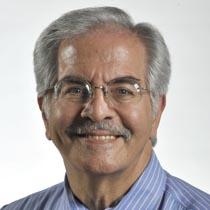Grand juries do an important task within the criminal justice system.
They hear evidence from prosecutors and then decide whether a criminal complaint merits an indictment, which is a formal accusation of a crime that needs to be decided by the courts.
Now, though, the grand jury “system” has come under attack as it relates to special counsel Robert Mueller’s investigation into whether the Donald Trump campaigned had an improper relationship with Russian government hackers seeking to meddle in the 2016 presidential election.
Who are the attackers? I’ve heard it come from right-wing talking heads on conservative media outlets. For example, Sean Hannity of Fox News said the grand jury that Mueller has impaneled is inherently biased against Trump. Hannity echoes the president’s description of Mueller’s investigation as a “witch hunt.”
Fascinating, yes? Sure it is. These are the same fools who called for grand jury investigations into Hillary Rodham Clinton’s missing e-mails. This is the “lock her up!” crowd that didn’t give a damn about any presumption of innocence and wanted a grand jury to find a reason to imprison the former U.S. senator, secretary of state and 2016 Democratic Party presidential nominee.
These individuals make me want to puke.
***
I now want to say a few words about the grand jury system.
It’s not perfect, but it works. Indeed, I have some intimate knowledge of the Texas grand jury system. I served on a grand jury for three months here in Randall County. I was asked to serve by a jury commissioner who was picked by 181st District Judge John Board; the jury commissioner, a friend of mine, was tasked with finding qualified individuals to serve on a grand jury.
I eventually was seated on the grand jury and we met in Canyon each week. We heard complaints brought to us by law enforcement. It was an educational process to be sure. Did we indict every criminal suspect named in a complaint? Hardly.
We would hear from prosecutors who would explain the circumstances surrounding the complaint. We would ask questions of them, talk among ourselves and then decide whether to issue an indictment. It was clean, simple and most importantly, it was done honestly and in good faith.
Granted, the stakes involved in our list of hearings fall far, far, far short of what awaits the grand jury that will consider the assorted Donald J. Trump matters that Robert Mueller will bring forward.
It angers me in the extreme, though, to hear partisan, talking-head hacks disparage for political purposes a segment of our criminal justice system that can — and does — bring great value to the delivering of justice.

